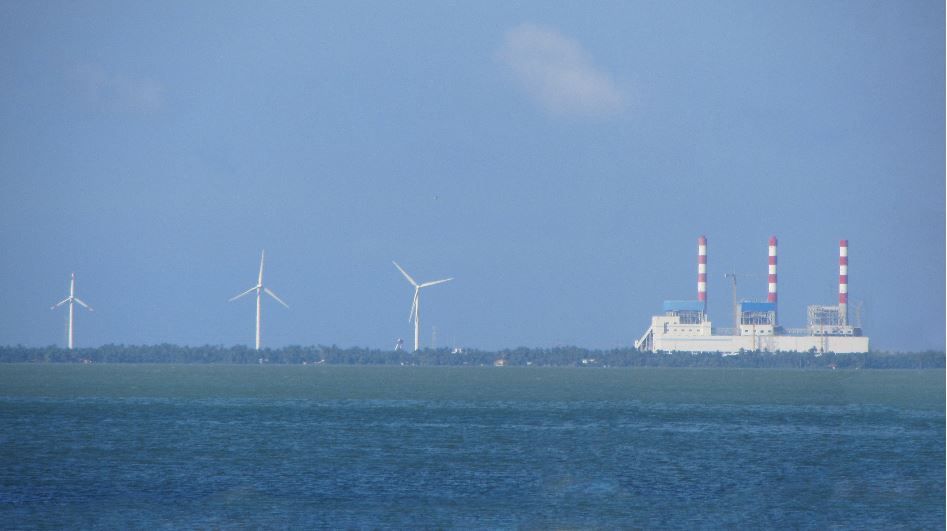
Overview: 10 MW wind power plant, displacing use of fossil fuels.
This project is a wind power plant on the North Wester coast of Sri Lanka, in the Mampuri/Nawakkadu village area. It comprises five Suzlon wind turbines, each of 2.1 megawatt (MW), with a combined installed capacity of 10.5 MW. The project has been approved under the United Nations CDM Programme.
Benefits: Emissions reductions and economic benefits
The project is on of ten large-scale wind power plants in Sri Lanka, contributing to a substantial reduction in the country’s greenhouse gas (GHG) emissions from power generation. Sri Lanka’s electricity grid is heavily dependent of fossil fuels, predominantly fuel and oil coal, with some diversification into biofuels and hydro. This project’s turbines harness wind energy to generate renewable electricity, which is exported to the regional grid.
The project started operations in December 2014 and will be issued emission reduction certificates over a seven-year period, though to November 2021. Projected emission reductions from the power plant are estimated at 18,324 tonnes CO2 equivalent (tCO2e) per year.
Over and above the emission reductions, local benefits to the country include the improvement of Sri Lanka’s energy self-sufficiency, along with improved electricity quality and frequency. The project has supported the local communities through its contribution to local employment, both during the construction phase and for the continuing operation and maintenance of the plant. Local infrastructure development as also been a positive factor, including the improvement of road and communication networks and improved economic activities.
Project’s carbon credits
Greenhouse gas reductions achieved by the project since the start of operations have averaged 18,500 tCO2e per year, in line with its design target. The corresponding carbon credits were verified by KBS Certification Services Pvt. Ltd, in accordance with the CDM Validation and Verification Standard (version 09) and Project Standard (version 09), Kyoto Protocol requirements and UNFCCC rules.

